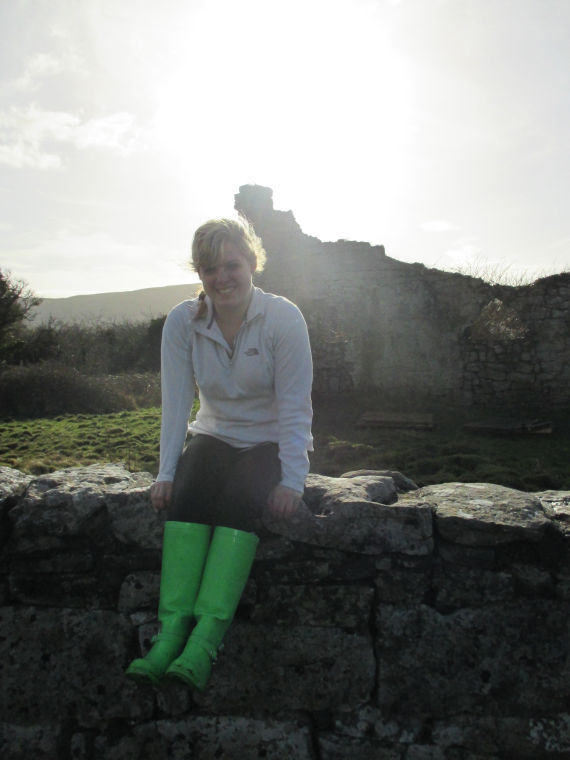Globe-trotting Grizzlies gather knowledge
“They crave the unknown,” she says. “It’s kind of like a high.”
Jackie Spezia, an Oakland student, explains why students get out of Rochester, get into a plane and jet off across the world to study abroad.
“That sounds bad, but, being lost in Paris, at one in the morning, on a bus, where you don’t speak a word of French, and there’s a bunch of creepy drunks all around you…the next day, when you’re like, ‘Oh my gosh. I just survived that. How did I not die?’ It’s like a high.”
The number of OU students studying abroad in the summer with outside organizations has more than doubled in two years, from 14 in 2012 to a tentative 29 in 2014, according to numbers provided by Dr. Brian Connery, interim director of international education at OU.
“More students are crossing borders than ever before. According to Unesco, there are 3.4 million students on the move each year all over the world, and that number is expected to grow,” says a New York Times Article by Joyce Lau.
The number studying with faculty led programs has decreased since last year, largely due to the social work program last year, which was a large anomaly.
“Even if you’re chained to a desk you can look back on your life and say, “I did something,” says Spezia, a student advisor for OU International Education.
“I have seen two gay pride parades in Barcelona.”
Her parents have never left the country.
“My brother thought there was a bridge to Spain.”
Spezia did something different.
“I wanted to see what else was out there.”
Other students have the wanderlust, too.
“I have students who come in and say, ‘I don’t care where I go. I want to go abroad,’” she says. “’I don’t care if it’s France. I don’t care if it’s Germany. I don’t care if it’s whatever. I wantnto go abroad.’”
Those are the ones who really have the bug, she says. They just need to get out.
Don’t think it’s all fun and games, though.
“The resume is always in the back of your mind,” she says. “Without a job this is kind of pointless.”
IES Abroad Alumni were nearly twice as likely to get a job within one year after graduation compared to the general college population, according to a study by IES Abroad, a 501(c)(3) nonprofit study abroad organization. They make about $7,000 a year more in starting salary.
One thing people forget is a journal, says Connery.
“We think well using language,” he says. “It’s more than photographs. It records how they feel about people and things that are going on.”
Instead of a selfie in front of Westminster Abbey, the journal would say “Today I got lost in London…”
Dr. Connery gazes up at a wall map and lists the places he’ll go on retirement.
“A lot of people are coming back with great stories about Iceland,” he says. “I have friends in Tunis….”
His favorite trip was the first time he took students to Ireland, in 2005, he says.
“Where is the bus driver taking us? I don’t know. Is it going to be worth our while? And it always was,” he says.
Pubs have to close at 11 p.m. in Sligo.
“But if the music’s really good and everybody’s having a good time, the pub owner will close and lock the place, so, they’re closed, and now it’s a private party,” he says. “If a cop comes around, nobody answers. There were 10 Americans and 30 locals that night. It was just magical. It really was.”
“You learn that it’s okay to do crazy things,” Spezia says. For an example, go to Barcelona.
“It just works. You figure it out, you survive, and it’s fine,” she says. “It kind of opens you up to how the other half lives.”
It’s known as the “transformational experience.”
“After study abroad, students indeed show more accelerated development in some of psychology’s standard ‘Big Five’ personality traits,” a nafsa.org article by Richard McGourty says about a study by Zimmermann and Neyer.
Spezia is proof.
Back home, you can hang out with the same people since you were five years old, she says.
“But if you go over there, you know no one. You are alone. It is you. You sink or swim. You succeed or fail. It is on you.”
And when you succeed, it’s you, too. This is a bit of a confidence booster.
“I never would be talking in this room before study abroad,” she says. “I would turn the light off in my dorm room when they came around for group activities so they would think I wasn’t there.”
It builds “‘intercultural muscle,’” says Carmen Arrue, site director of AHA’s Oviedo program.
“I expect to leave this experience with a better, more rational, yet awed view of the world we live in,” says Jordan James, an OU student studying abroad in Dublin.
“Everyone tells me that they wish they had done something like this when they were young.”
Some are repeat offenders, Spezia says.
“Once you go abroad once, you want to do it again, and again.”








